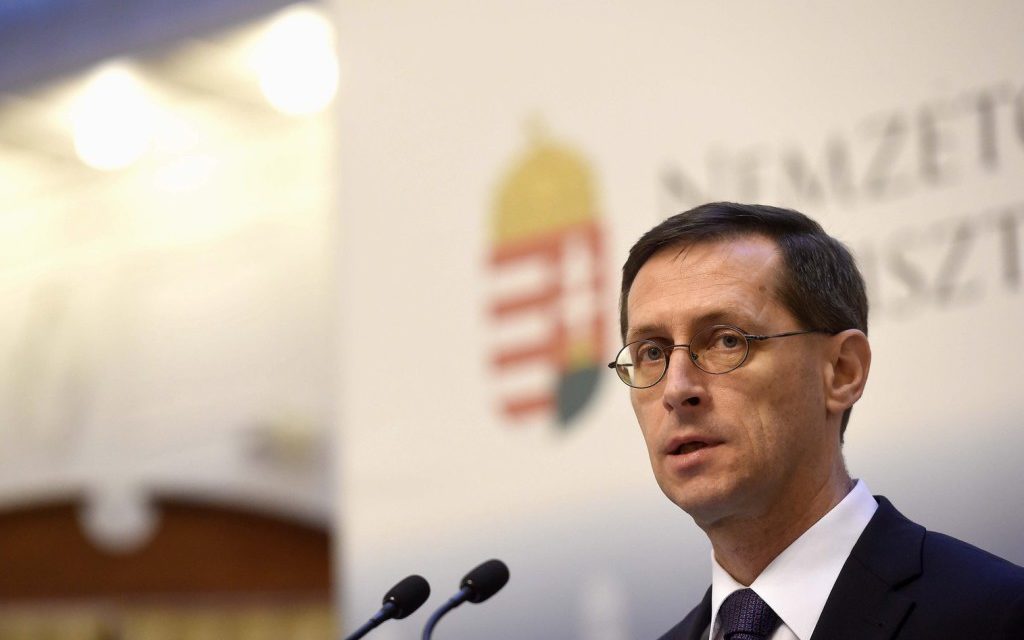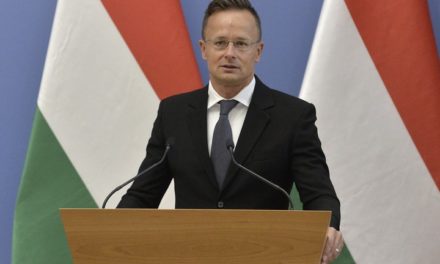If he wanted to, he couldn't screw up the Hungarian economy with Brussels, said the finance minister in an interview published on Monday in the online newspaper Origo. According to Mihály Varga, Brussels is trying to turn a purely economic issue into a political issue again. "We trust that common sense will prevail in the end and that a reasonable solution will be found," he said.
"We are constructive, we cooperate, but it is important to note that the shameful attitude of Brussels does not affect the situation of the Hungarian economy," said the minister.
Current calculations show that the performance of the Hungarian economy can grow by over 6 percent this year even if not a single penny arrives from the European Union by the end of the year. The necessary government steps have been prepared for this, he said.
Mihály Varga explained that the latest data lead to the conclusion that the growth of the Hungarian economy could be greater than 14 percent in the second quarter, and the GDP could increase by 6.5 percent for the whole year. Next year, the Hungarian government expects another 5.3 percent growth, which means that the economy can make up for the losses it suffered due to the coronavirus crisis in a year and a half.
The minister said that both Hungarian and international factors play a role in the development of prices. Economies are now being restarted all over the world after shutdowns due to the epidemic, but in many cases, supply cannot keep up with demand, and as a result, there is a temporary shortage of certain goods and raw materials. That drives up prices, he said. He emphasized that it is not the VAT or the government that makes certain products more expensive.
The Ministry of Finance estimates that inflation will be 4.2 percent this year and 3.6 percent next year.
As he said, if the world economy restarts, a larger group of global price-inflating factors will disappear.
He said that at the beginning of the year, there was a 3 percent pension increase, but inflation unexpectedly jumped, so the government - unusually - implemented a mid-year pension increase in June: the benefits were increased, and the 0.6 percent increase was paid out in a lump sum going back to the beginning of the year. .
"If the annual inflation is higher than 3.6 percent, and according to the latest calculations this seems very likely, then another pension increase and retroactive payment will follow in November," he added.
According to current calculations, the state will pay the pension premium this year. Mihály Varga said that more than HUF 50 billion were set aside for this in this year's budget.
The finance minister also touched on the fact that the government is preparing for families to get back the paid personal income tax at the beginning of next year. Mihály Varga added, "We can return the taxes paid to one and a half million taxpayers of a million families up to the level of the average salary."
The minister responded to the criticism that the government is preparing an election budget by saying that the difference between the experts and the left is that the former start from the facts, while the latter are not interested in the facts when they express an opinion on something.
Regarding the introduction of the global minimum tax, the Minister of Finance said that Hungary does not support any tax increase, especially not one that would represent a competitive disadvantage not only for the country, but also for foreign companies operating here.
According to the plans, the unified corporate tax rate would be 15 percent, while the Hungarian corporate tax rate is only 9 percent.
"We can only represent the Hungarian interest in this matter, and this will be the case even if we have to go against the American president's proposal," the minister noted.
MTI
MTI Photo: Noémi Bruzák













